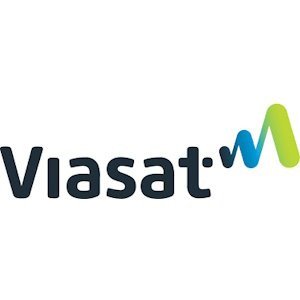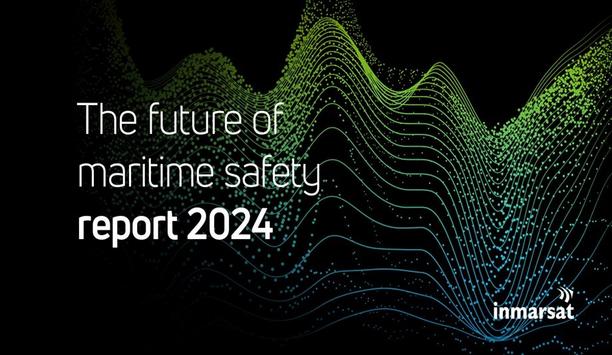Viasat Inc. - Experts & Thought Leaders
Latest Viasat Inc. news & announcements
The 2024 edition of The Future of Maritime Safety Report from Inmarsat Maritime, a Viasat company, reveals that Global Maritime Distress and Safety System (GMDSS) distress calls decreased by 7.6% in 2023 over the previous year. Despite this decline, the service was still triggered on 788 occasions and remains close to the six-year average of 799 calls per year. This statistic underscores the ongoing challenges in maritime safety and the need for real improvements. Overcoming operational challenges The report suggests that the maritime industry is beginning to overcome some operational challenges linked to the COVID-19 pandemic, such as limited inspections and disrupted maintenance schedules. However, with the emergence of potential new safety risks associated with future fuels particularly in the context of the industry's transition to more sustainable practices - and escalating geopolitical tensions, the industry must intensify its efforts to mitigate preventable safety issues. Call to action for maritime The report goes on to suggest that any concerns regarding data pooling related to confidentiality The Future of Maritime Safety report not only provides a snapshot of current safety metrics but also serves as a call to action for the maritime industry to embrace data sharing and collaborative problem-solving as the industry strives to navigate through significant changes, including the transition to greener propulsion technologies. The report goes on to suggest that any concerns regarding data pooling related to confidentiality or reputational damage could be addressed by anonymising casualty and incident data. Report recommendations It recommends that the shipping industry establishes a list of standard data points to monitor and report, including casualties and incidents, injuries or deaths at sea, and near misses. It also endorses trend analysis to support the development of safety measures, with a particular emphasis on developing risk treatments for well-known and recurring issues. Modern technology Peter Broadhurst, Senior Vice President of Safety and Regulatory, at Inmarsat Maritime, said, “By harnessing the power of anonymised safety data, we can identify trends, develop specific mitigation measures, and enhance the overall safety of our ships and crews." He also highlighted the critical role of technology in supporting these efforts, noting that "modern technology offers unprecedented opportunities to improve safety through better data analysis and sharing." Leveraging actionable insights “Although progress has been made, shipping continues to experience significant casualty rates,” commented Broadhurst. “We collect vast amounts of safety data, yet the current siloed-working model hinders our ability to fully leverage the actionable insights available to us." Holistic and objective maritime view "By pooling data, we can create a more holistic and objective view of maritime safety to inform performance improvements and ultimately reduce preventable safety incidents to save lives at sea.” Inmarsat invites maritime professionals, policymakers, and stakeholders to read the full report to understand the dynamics of maritime safety better and to join in the collective effort to safeguard our seas.
Inmarsat Maritime, a Viasat company, has launched a new report Digital Wave: Transforming Vessels into Floating Offices and Remote Homes. The report explores the growing importance of ‘always-on’ onboard connectivity as ships and their crew become increasingly reliant on digital technology. In an era that sees ships functioning as ‘floating offices’, a reliable network connection optimises vessel operations and enhances life on board. Equally, the consequences of any loss of connectivity on safety, efficiency, and seafarer welfare can be severe. Emerging technology trends Compiled by maritime technology research firm - Thetius, the report draws on interviews and survey data to provide insight into how crews and shore-based teams are using digital technologies. It begins by examining emerging technology trends: specifically, how ships are becoming floating offices and the resultant demand for collaborative and always-on software. 89% of the seafarers surveyed in the report rely on connectivity for both work and leisure 89% of the seafarers surveyed in the report rely on connectivity for both work and leisure, while the remaining 11% can only access the internet for work purposes. On average, the respondents use digital tools for five hours a day while working, with 82% using them to communicate with friends and family in their spare time. The survey results also revealed that, overall, the crew sees connectivity loss as having a more significant impact on their leisure time than on their working practices. Cohesive and collaborative approach The report goes on to describe the importance of a cohesive and collaborative approach to data management based on five supporting factors: a common data language, effortless connectivity for both operations and crew well-being, secure and safe connectivity, globally approved systems, and a willingness to share data. By encouraging all relevant stakeholders, such as ship owners and operators, charterers and regulatory bodies to contribute to and manage available data, a cohesive approach supports a centralised data management system, fosters innovation and agility, facilitates behavioural change for safety and operational efficiency, and reduces costs, according to the report. Safe and efficient vessel operations Ben Palmer, President, Inmarsat Maritime, said: "To fully harness the benefits and steer clear of the potential challenges brought by shipping’s new digital wave, fast and reliable connectivity with consistent global coverage - including in hotspots and remote locations - is indispensable." He adds, "Inmarsat is committed to supporting safe and efficient vessel operations and crew welfare, delivering the certainty and trust that maritime and offshore enterprise customers expect from a reliable service provider."
Viasat, Inc., a global pioneer in satellite communications, announced Applied Satellite Technology (AST), a pioneering global innovator in satellite communication solutions, has joined its ELEVATE program. ELEVATE is a growth program, ecosystem and marketplace for ambitious IoT solution providers, connectivity wholesalers, enablers and OEMs who want to work with Viasat to use its network and footprint to scale. As an ELEVATE partner, AST will provide globally trusted connectivity solutions that deliver real customer value by enabling complete remote control to connect people, systems, and assets even in the remotest locations. Viasat’s global L-band network This aims to support customers make data-driven decisions that enhance performance As part of the program, AST will benefit from Viasat’s global L-band network – amplifying its ability to provide Internet of Things (IoT) and satellite connectivity services. This aims to support customers make data-driven decisions that enhance performance, improve efficiency, and reduce operating costs. For customers, partnering with AST also means benefitting from its broad cross-industry knowledge, customer-centric mindset, 24/7 global technical support, dedicated account managers, and experienced engineers. Mission-critical connectivity AST will also gain access to Viasat’s broader partner network, creating opportunities to collaborate on additional niche communications solutions for its customers. ELEVATE’s marketplace will help the company attract new customers in locations without reliable connectivity, or those which have mission-critical connectivity needs. For customers, it gives access to a broad choice of satellite connectivity and IoT solutions developed by a range of providers to enhance the efficiency, safety and sustainability of their businesses. Development of IoT solutions ELEVATE is a one-stop-shop that helps our partners easily leverage the latest technology Simon Hawkins, Vice President, Enterprise Commercial & Innovation at Viasat said: "ELEVATE is a one-stop-shop that helps our partners easily leverage the latest technology to meet some of the greatest challenges the planet faces today. By combining forces, we will accelerate the development of IoT solutions to meet our clients' mission-critical requirements across diverse industries.” “As a pioneering integrator, AST has over 30 years of experience meeting diverse industries' complex communication needs, with high-profile projects in various sectors, including utility, energy, mining, maritime and government markets. That is highly exciting for ELEVATE because they can help other members and end users realise their digital connectivity ambitions.” Viasat's advanced connectivity solutions Gary White, Chief Executive Officer at Applied Satellite Technology, said “I am thrilled to share the strategic decision behind our collaboration with Viasat's ELEVATE program. This partnership unlocks a new era of connectivity for both our company and customers – granting access to cutting-edge technologies, ensuring our services remain at the forefront of the industry. Our goal is to innovate, expand globally, and enhance customer satisfaction, and ELEVATE provides the ideal platform for achieving these objectives." Partnership reinforces Viasat's commitment to delivering top-tier connectivity solutions and positions" “We are excited to leverage Viasat's advanced connectivity solutions, a key component of ELEVATE, to provide our customers with reliability and performance. Already, opportunities within Viasat's partner ecosystem have sparked collaborations that promise to redefine industry standards. This partnership reinforces our commitment to delivering top-tier connectivity solutions and positions us for sustained success in an ever-evolving market." Viasat’s ELEVATE program Viasat’s ELEVATE program is open to new entrants, disruptors and established brands of any size who have developed an innovative digital product or service and want to access the power of satellite-enabled IoT solutions. Viasat provides dedicated technical guidance on how to integrate and support its highly reliable satellite services, go-to-market strategy planning and exposure to its distribution channel to enable access to new markets. Providers working across a diverse range of industries, including, but not limited to, agriculture, aid and NGOs, energy, exploration and leisure, media, mining, transport and utilities, as well as agnostic technology providers, will be considered for membership.







